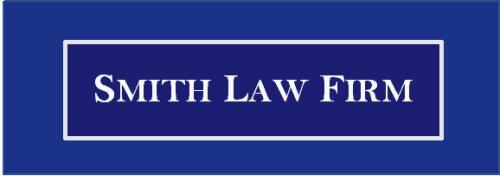Best Landlord & Tenant Lawyers in Toronto
Share your needs with us, get contacted by law firms.
Free. Takes 2 min.
Free Guide to Hiring a Real Estate Lawyer
List of the best lawyers in Toronto, Canada
About Landlord & Tenant Law in Toronto, Canada
Landlord & Tenant law in Toronto, Canada governs the relationship between landlords and tenants in residential rental properties. It is designed to protect the rights and interests of both parties involved. The laws establish guidelines for renting, evictions, rent increase, repairs, and other important aspects of the landlord-tenant relationship.
Why You May Need a Lawyer
There are various situations where seeking legal help in Landlord & Tenant matters may be necessary. Some common scenarios include:
- Evictions: If you are facing eviction or believe your landlord is trying to unlawfully evict you.
- Rent Increase Disputes: When you believe your landlord is unfairly increasing your rent beyond the legal limit.
- Repairs and Maintenance: If your landlord is refusing or neglecting to address maintenance issues that affect your health and safety.
- Lease Agreement Review: If you want legal advice before signing a lease agreement to ensure your rights are protected.
- Illegal Discrimination: If you suspect you are being discriminated against based on a protected characteristic, like race or disability.
Local Laws Overview
In Toronto, several local laws are particularly relevant to Landlord & Tenant matters. Here are key aspects to be aware of:
- Rent Control: The Residential Tenancies Act (RTA) sets out rules for rent increase limits in rent-controlled units.
- Eviction Process: The RTA outlines the legal eviction process, including required notices and grounds for eviction.
- Maintenance and Repairs: The landlord is responsible for maintaining the rental unit and ensuring it meets health and safety standards.
- Human Rights Code: This legislation prohibits landlords from discriminating against tenants based on protected grounds such as race, gender, disability, or family status.
Frequently Asked Questions
1. Can a landlord increase the rent by any amount?
No, in rent-controlled units, rent increases are limited to the guidelines set by the government each year. The Ontario government determines the annual percentage by which rents can be increased.
2. What can I do if my landlord refuses to make necessary repairs?
If your landlord fails to address necessary repairs that affect your health or safety, you can file an application with the Landlord and Tenant Board to request the repairs or seek a rent reduction until they are completed.
3. How much notice is a landlord required to give before evicting a tenant?
The notice period for eviction depends on the reason for eviction. Typically, a landlord must provide written notice at least 60 days in advance for most reasons, although shorter notice periods apply in certain situations.
4. Can a landlord enter my rental unit without my permission?
A landlord can only enter your rental unit for specific reasons as outlined in the RTA. Generally, your landlord must provide written notice at least 24 hours in advance and obtain your consent, except in emergencies.
5. Can a landlord refuse to rent to me based on my family status?
No, under the Ontario Human Rights Code, landlords are prohibited from discriminating against potential tenants based on family status, including if you have children or are expecting a child.
Additional Resources
If you need further legal advice or assistance regarding Landlord & Tenant matters in Toronto, you may find the following resources helpful:
- Landlord and Tenant Board of Ontario: http://www.sjto.gov.on.ca/ltb/
- Ontario Ministry of Municipal Affairs and Housing: https://www.mah.gov.on.ca/
- Community Legal Education Ontario: https://www.cleo.on.ca/
Next Steps
If you require legal assistance in a Landlord & Tenant matter, it is recommended to consult with a lawyer specializing in this area. They can provide personalized advice based on your situation and help protect your rights and interests throughout the process.
Lawzana helps you find the best lawyers and law firms in Toronto through a curated and pre-screened list of qualified legal professionals. Our platform offers rankings and detailed profiles of attorneys and law firms, allowing you to compare based on practice areas, including Landlord & Tenant, experience, and client feedback.
Each profile includes a description of the firm's areas of practice, client reviews, team members and partners, year of establishment, spoken languages, office locations, contact information, social media presence, and any published articles or resources. Most firms on our platform speak English and are experienced in both local and international legal matters.
Get a quote from top-rated law firms in Toronto, Canada — quickly, securely, and without unnecessary hassle.
Disclaimer:
The information provided on this page is for general informational purposes only and does not constitute legal advice. While we strive to ensure the accuracy and relevance of the content, legal information may change over time, and interpretations of the law can vary. You should always consult with a qualified legal professional for advice specific to your situation.
We disclaim all liability for actions taken or not taken based on the content of this page. If you believe any information is incorrect or outdated, please contact us, and we will review and update it where appropriate.















